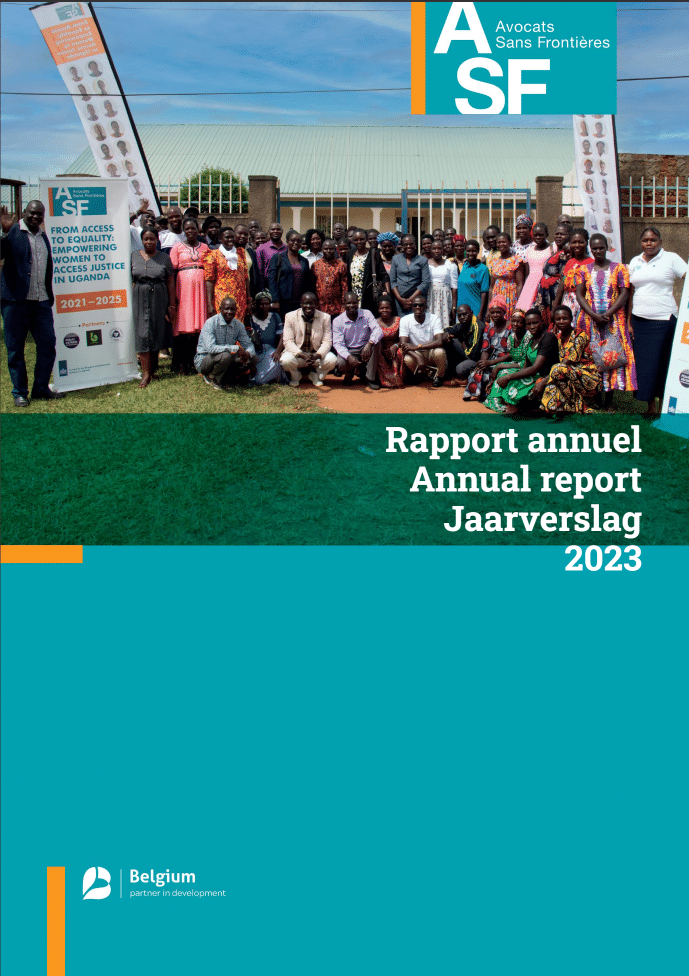Country: Tunisia
-
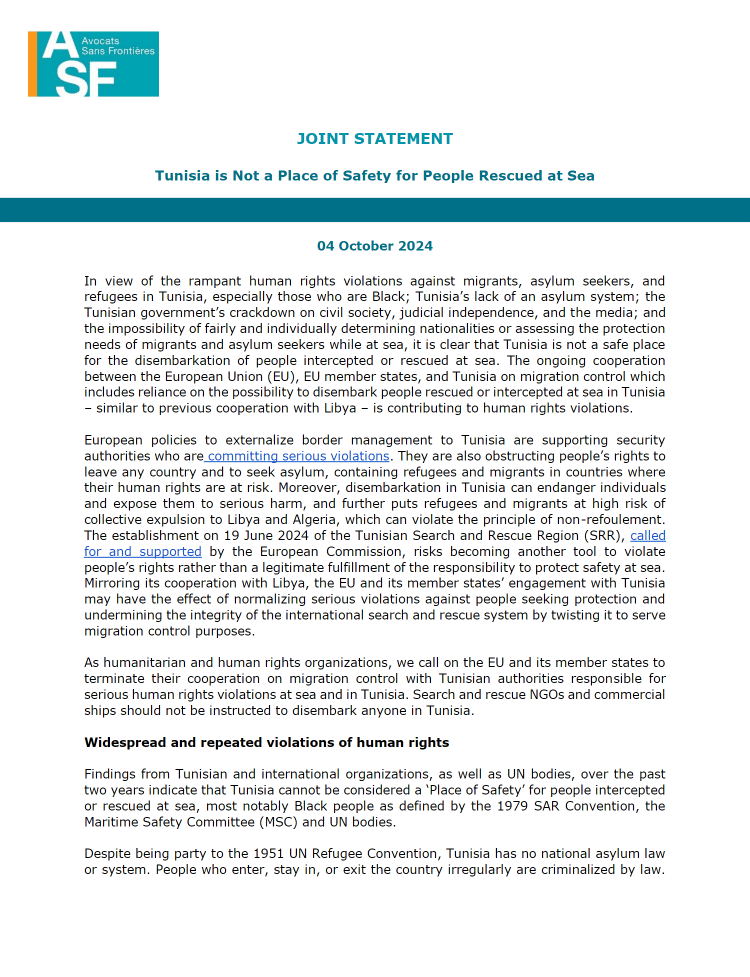
Joint Statement – Tunisia is Not a Place of Safety for People Rescued at Sea (French)
Also available in French
-

Joint Statement – Tunisia is Not a Place of Safety for People Rescued at Sea (English)
Also available in French
-
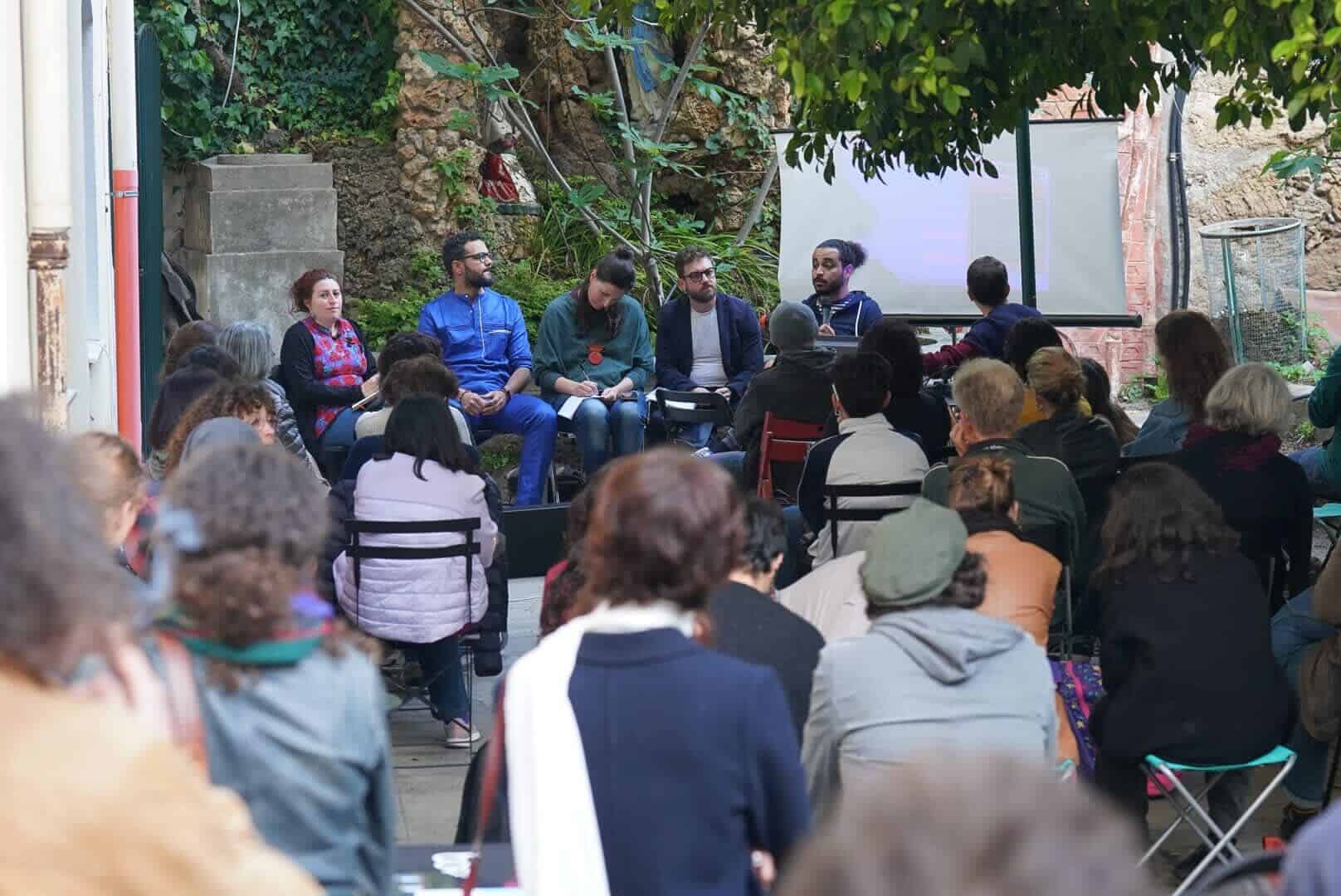
The Euro-Mediterranean region: an area of interdependence and shared struggles for human rights and the rule of law
En 2018, ASF a pris la décision de créer un hub régional dans la région Euro-Méditerranée, basé à Tunis, dans le but de mutualiser les moyens et de renforcer et harmoniser son action dans la région. L’aspect novateur du bureau régional est d’assumer pleinement les liens historiques, économiques, politiques et culturels qui existent entre les…
-
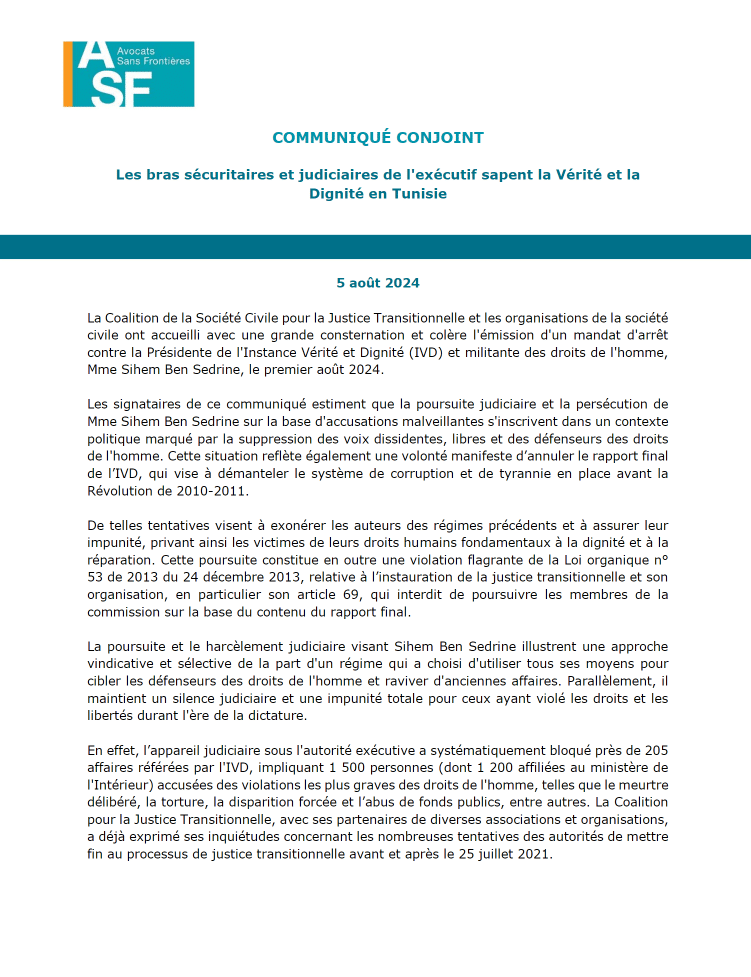
-
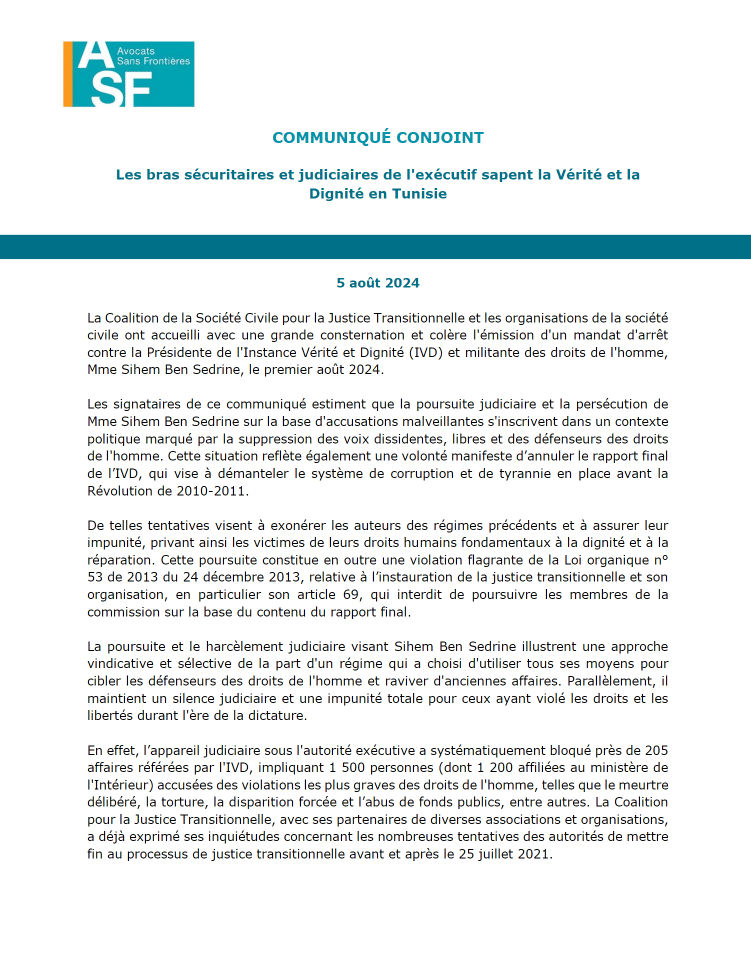
-

Tunisia: People in migration threatened by the rise of discriminatory rhetoric and policies
Because of its geographical position and proximity to the European coast, Tunisia has long been considered a major transit country for sub-Saharan migrants. However, heightened security measures and the militarization of the European Union’s borders, as well as border outsourcing policies, have meant that Tunisia has become a country of settlement for many people in…
-

What’s new with Justice ExPEERience?
Justice ExPEERience was launched in 2021 by Avocats Sans Frontières. Today, the network brings together over 800 members working in the fields of human rights defense, access to justice and the fight for social justice in some 50 countries.
-
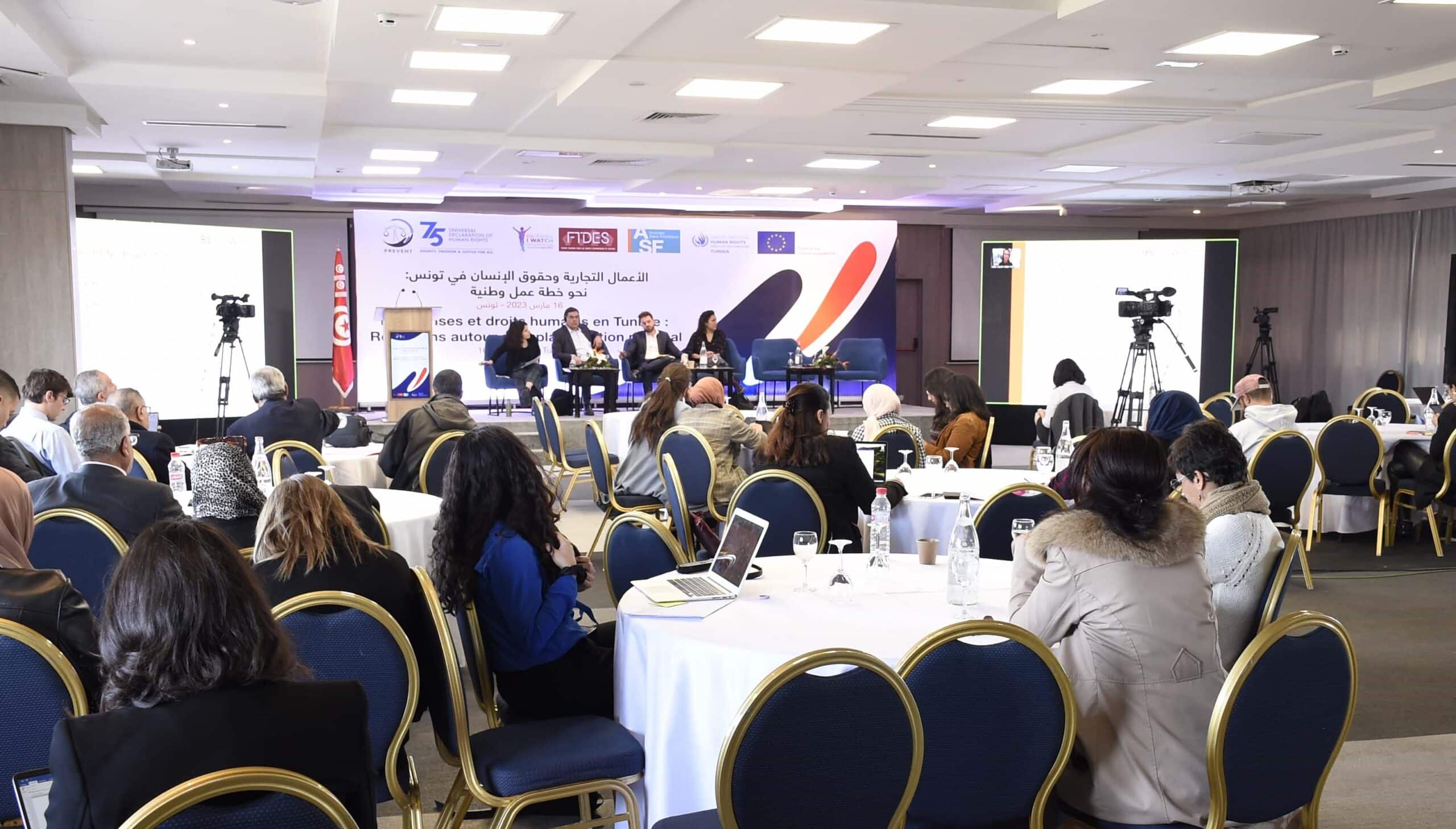
Economic development must serve human rights, not undermine them
In the global economic landscape, companies are no longer simply commercial players, they are shaping political landscapes and societal dynamics. In this article, published in our latest annual report, ASF explains how it addresses the systemic challenges linked to the activities of private companies by defending the rights of affected communities and tackling the impunity…
-
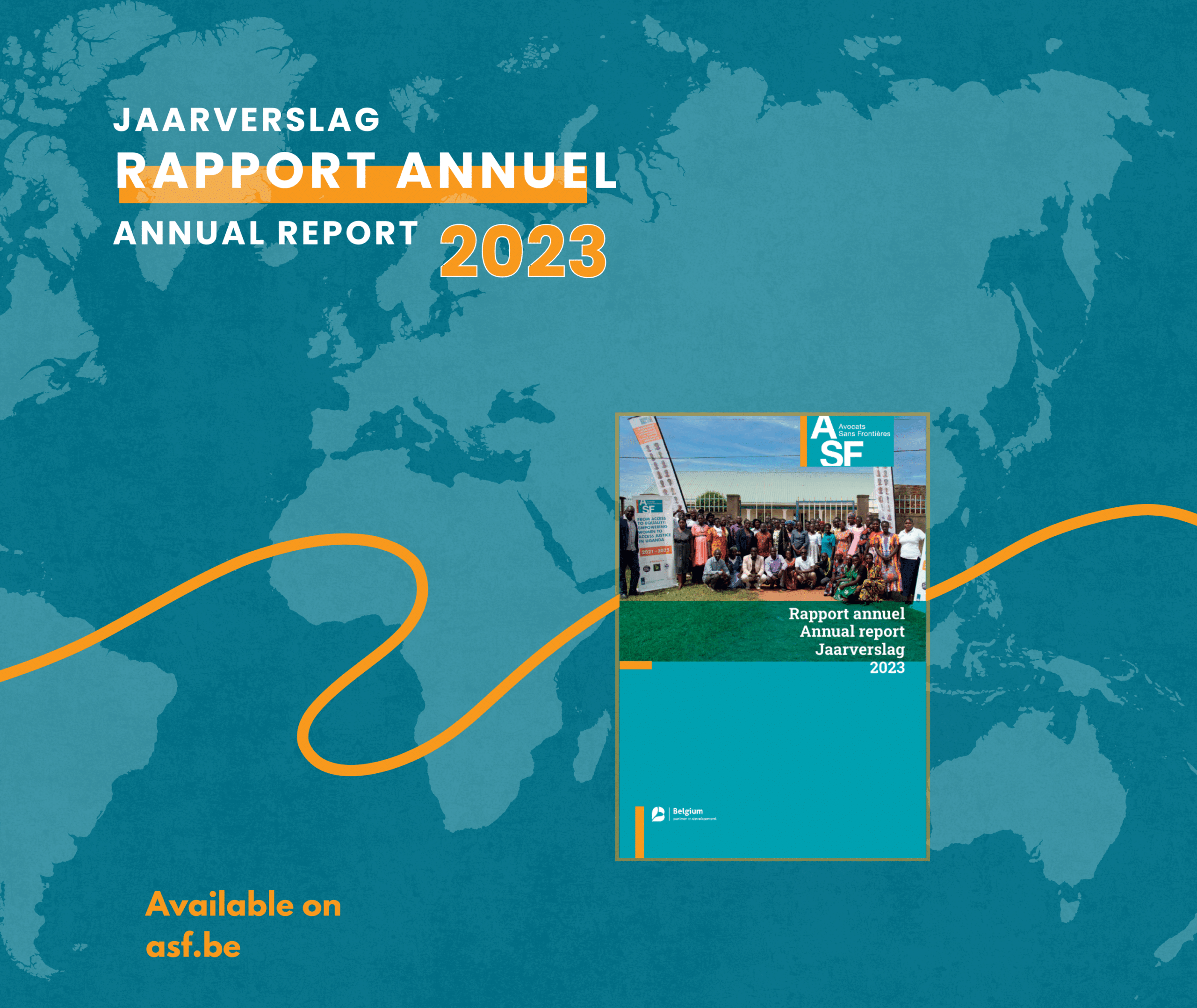
ASF’s annual report is available!
ASF has just published its 2023 annual report. In it, the organisation discusses the many challenges it faces at a time when authoritarianism is on the rise and the principles of human rights and the rule of law are being attacked throughout the world. In the face of these challenges, ASF is adapting and adapting…

